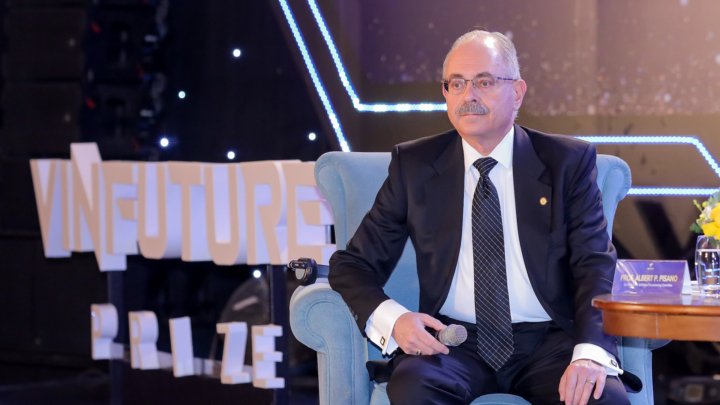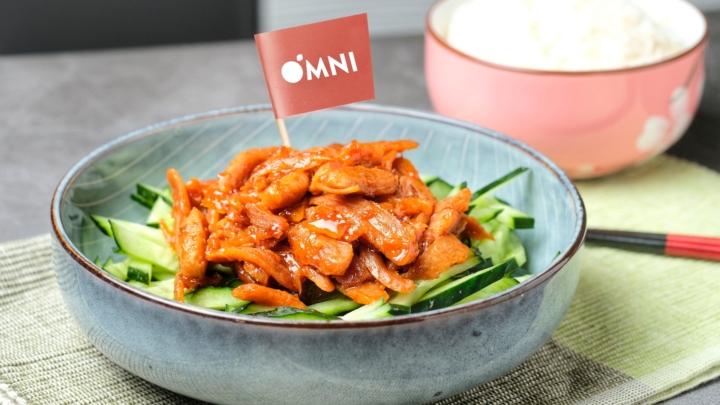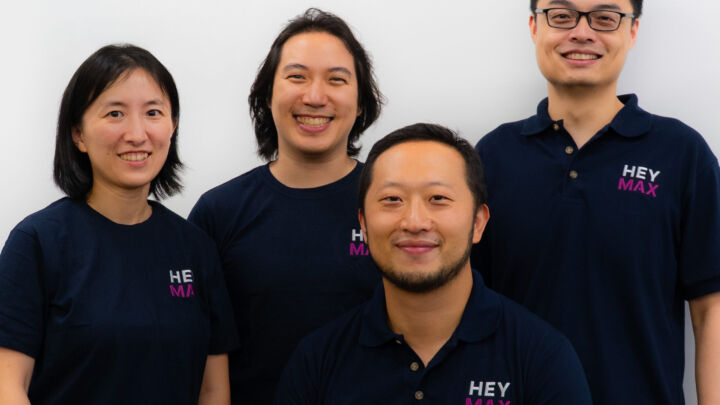J. Angelo Racoma
SaaS,TNGlobal Q&A and Interviews
Engagement is the key to a successful event, says Hubilo’s Vaibhav Jain [ORIGIN Innovation Awards Q&A]
An increasing number of event organisers have realised the benefits of digital transformation. Enhanced ROI, reach, and savings are just a few of the benefits we can list resulting from virtual events; every virtual event generates at least 10x value for event organisers.
February 7, 2022
Partner Event,TNGlobal Q&A and Interviews
Great scientists must be humanitarians as well, says VinFuture Prize Co-Chair Professor Albert P. Pisano [Q&A]
In this TechNode Global Q&A, Professor Albert P. Pisano, Co-Chair, VinFuture Pre-Screening Council, shares his insights into the process of scientific discovery and how great scientists need to be humanitarians as well. "It is most important to keep in mind that the real purpose for doing all of this is to help people," he tells TechNode Global.
February 4, 2022
Makan For Hope connects entrepreneurs, investors, innovators & industry leaders to support and inspire each other in the spirit of giving back [ORIGIN Innovation Awards Q&A]
"The idea for Makan For Hope sparked while thinking how to bring the ecosystem together and give back in different ways to create long-lasting impact. It is easy to have goodwill in good times, but in these trying times, how we help others will make a greater difference."
February 3, 2022
TNGlobal Q&A and Interviews,Venture Capital
Resilience, adaptability & speed to scale are essential in navigating today’s business challenges, says Quest Ventures’ James Tan [ORIGIN Innovation Awards Q&A]
"More VCs in the medium and long-term with bigger war chests. This would mean more funds to deploy and the ability to grow the startup ecosystem more rapidly."
January 31, 2022
TNGlobal Q&A and Interviews,FoodTech
Consumers are now more discerning of the safety, sustainability & health impacts of food, says Shiok Foods’ Sandhya Sriram, PhD [ORIGIN Innovation Awards Q&A]
The company's mission is to bring delicious, sustainable, and healthy seafoods to consumers' tables, using technology to grow meat from healthy cells instead of animals. Currently, Shiok Meats produces crustaceans like shrimps, crabs, lobsters and is the first in the world to do so using cellular agriculture technology.
January 28, 2022
FoodTech,TNGlobal Q&A and Interviews
Green Monday Group’s David Yeung on how FoodTech is addressing global food security and environmental concerns [ORIGIN Innovation Awards Q&A]
OmniFoods has a mission to innovate food that will treat the planet right, treat animals right and treat consumers right. The company's established food scientist team in Canada innovates food 2.0 based on Asian eating culture and cooking habits while ensuring that the ingredients are cruelty-free, cholesterol-free, antibiotic-free, and hormone-free.
January 26, 2022
Vietnam,TNGlobal Q&A and Interviews,Partner Event
VinFuture Prize Chair Professor Sir Richard Henry Friend on opportunities in science and discovery [Q&A]
"I think that world is still there to be discovered. As we make progress with our technologies, we will discover more. All the exciting examples turn out to have an unexpectedness about them. It wasn't a linear process towards the end. And that's how science should be."
January 26, 2022
TNGlobal Q&A and Interviews,FoodTech
For Alchemy Foodtech’s Verleen Goh, food innovation is all about empowering consumers toward healthier and more sustainable choices [ORIGIN Innovation Awards Q&A]
We challenge the notion that healthy is expensive. Healthy doesn't have to mean spending a fortune. Instead, the mass premium products with functional benefits mean that majority of people can afford a healthier option, with 0-30 percent premium, which is an affordable price to keep the doctor away.
January 24, 2022
FinTech,TNGlobal Q&A and Interviews,RegTech
Tookitaki’s Abhishek Chatterjee on enhancing trust and security in FinTech through RegTech driven by AI and collaboration [ORIGIN Innovation Awards Q&A]
Tookitaki’s AML compliance platform harnesses artificial intelligence (AI) to support a family of intelligent specialist compliance applications that set new standards in accuracy, speed, and resilience.
January 19, 2022
AI,TNGlobal Q&A and Interviews
OnPoint’s Tran Vu Quang on how innovations are optimizing e-commerce operations and driving new opportunities for growth [ORIGIN Innovation Awards Q&A]
AI technology will also help merchants optimize their operations--reducing wastage in supply chain and increasing resilience. For example, we are able to achieve a highly accurate demand forecasting, and be able to optimise time, quantity and location to place the inventory.
January 18, 2022












